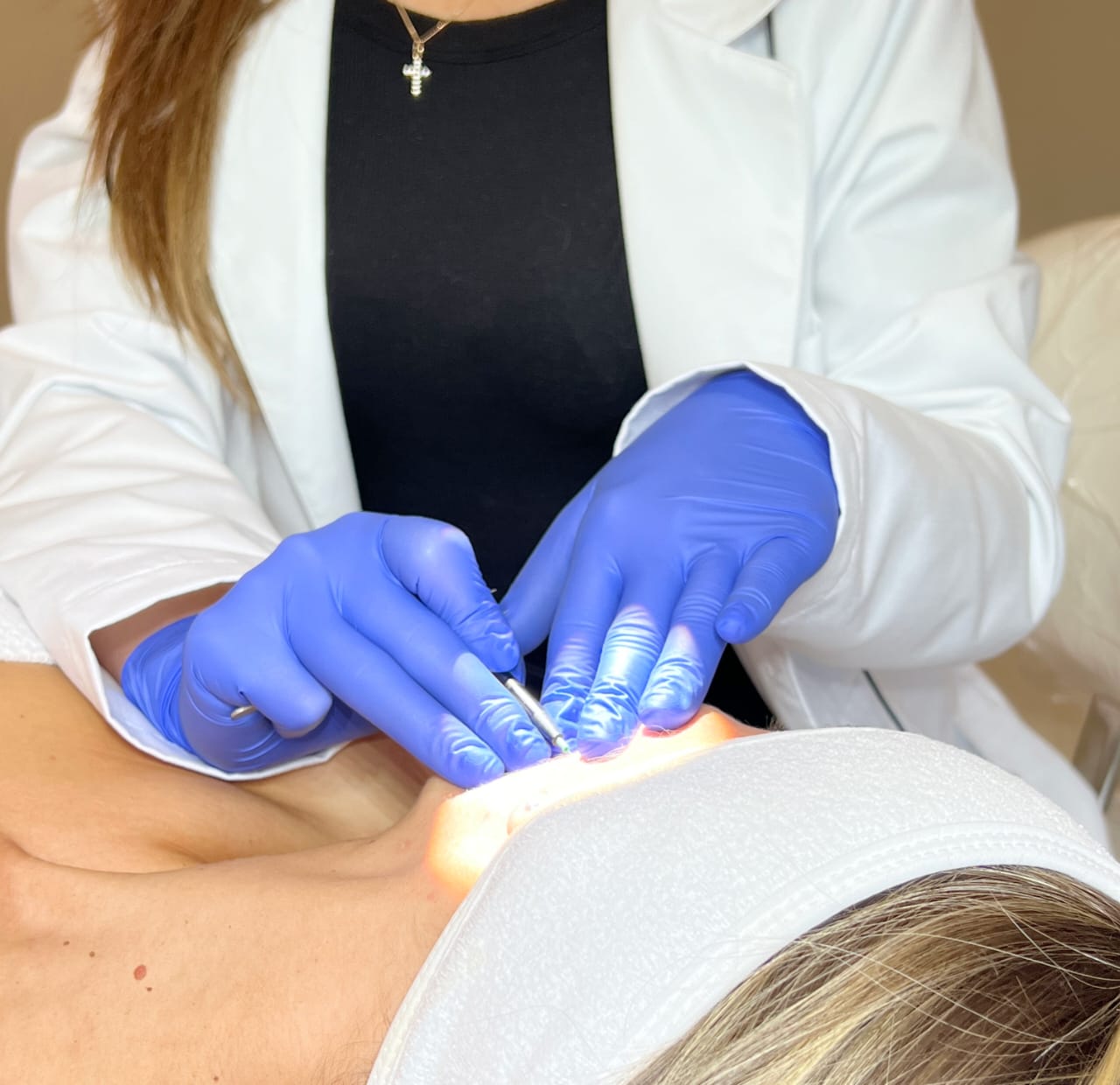
Treating PCOS-Related Hair Growth with Electrolysis and Laser
Polycystic Ovary Syndrome, or PCOS, is a condition that brings along various side effects. Whether you’re dealing with issues like acne, weight gain, or, as you might have guessed, unwanted hair growth on areas like your face, chest, or abdomen, it’s essential to recognize that you’re not alone in facing these challenges. The silver lining when it comes to excessive hair growth is that you have the opportunity to exert more control over it. If you’re trying to figure out whether laser hair removal or electrolysis is the better choice for managing PCOS-related hair growth, there’s good news: both of these hair removal methods offer longer-lasting results compared to traditional methods like shaving or waxing. However, there are key differences between them that you’ll want to understand before committing to either.
Understanding PCOS-Related Hirsutism
Hirsutism is a condition characterized by the excessive growth of coarse, dark hair in areas where men typically grow hair, such as the face, chest, back, and abdomen. It is a common symptom of PCOS and is primarily caused by an overproduction of androgens (male hormones) in individuals with PCOS.
Treating PCOS-Related Hirsutism with Electrolysis
According to the FDA, electrolysis stands as the sole hair removal method officially recognized as “permanent.” Here’s how it works:
- The Electrolysis Process – During an electrolysis hair removal session, a trained professional inserts a tiny probe into the hair follicle. This probe delivers an electric current that destroys the hair follicle’s ability to grow new hair.
- Precision and Permanence – Electrolysis is precise and effective, making it ideal for treating individual hairs or small areas with unwanted hair. Because it permanently damages the follicles, it provides a long-term solution for PCOS-related hair growth.
- Suitable for All Hair and Skin Types – Unlike some other hair removal methods, electrolysis is safe and effective for all hair types and skin tones, making it an inclusive choice for individuals with PCOS.
- Pain Management – While some discomfort is associated with electrolysis, most people find it tolerable. Topical numbing creams can also be used to minimize discomfort during the procedure.
Treating PCOS-Related Hirsutism with Laser Hair Removal
Laser hair removal is another popular choice for managing PCOS-related hair growth. Here’s how it works:
- The Laser Process – Laser hair removal uses concentrated beams of light to target and destroy hair follicles. The pigment in the hair absorbs the light, effectively inhibiting future hair growth.
- Speed and Efficiency – Laser hair removal is faster than electrolysis and can treat larger areas in a shorter time. This makes it a convenient option for individuals with PCOS seeking to manage hair growth in multiple areas.
- Semi-Permanent Results – While laser hair removal significantly reduces hair growth, it may require occasional touch-up sessions to maintain smooth skin. However, the reduction in hair density can be life-changing for many individuals with PCOS.
- Skin Tone Considerations – Laser hair removal is most effective on individuals with lighter skin and darker hair.
Much like electrolysis, laser hair removal typically requires multiple sessions spread out over several months to achieve optimal results. However, unlike electrolysis, laser hair removal offers significant improvements that, while not permanent, are quite noticeable. Research indicates a reduction in hair growth ranging from 50 to 79 percent six months after treatment. Although complete elimination of unwanted hair isn’t guaranteed, the regrown hair tends to be finer and less conspicuous.
Whether you opt for laser or electrolysis to manage PCOS-related hirsutism, it’s crucial to collaborate with a qualified professional, ideally a dermatologist. These treatments come at a cost, ranging from a few hundred to several thousand dollars, which may tempt you to explore spas offering enticing deals on laser hair removal or electrolysis. Nevertheless, exercising caution is essential. Prior to committing, read reviews and inquire about the technician’s qualifications. Better yet, seek recommendations from reputable sources such as the National Polycystic Ovary Syndrome Association’s forums.



